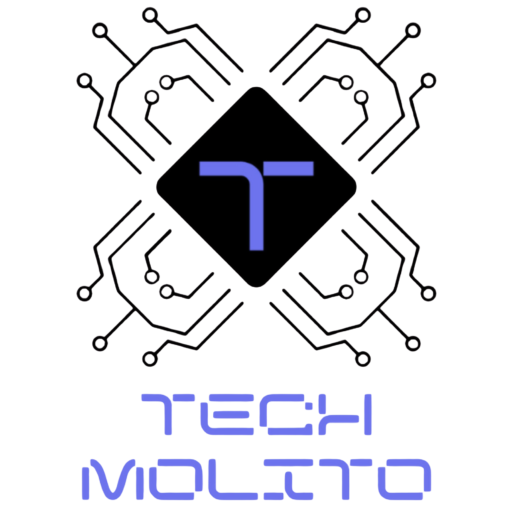Let’s talk about something big in finance today, blockchain. It’s a word we hear often, but what does it really mean for financial services? Why should we care? Blockchain is not just a buzzword. It’s changing how businesses work, especially in finance. Let’s break it down.
Blockchain offers enhanced security for financial transactions, but ensuring personal information is protected remains crucial. Digital identity verification plays a vital role in safeguarding user identities within these secure systems, as explained in Digital Identity Verification.
Financial Systems Are Slow and Costly
The world of finance is full of middlemen. When we send money, banks, and other parties get involved. These processes are slow, costly, and prone to errors. International transfers can take days. Fees pile up. There’s also the risk of fraud, identity theft, and other security problems. The system isn’t perfect, and we all feel it.
The Problems Impact Us All
Think about a simple bank transfer. You’re sending money, but it doesn’t arrive right away. Why? Because it goes through multiple systems. The delay means wasted time. Now, imagine that on a global scale. Businesses lose money and time. People get frustrated.
The more steps there are, the more places where things can go wrong. Worse, hackers and criminals find ways to exploit weak points in the system. Fees are another problem. Banks and third parties charge for their services. It’s how they make money, but it hits our pockets too. Why should sending our own money cost us extra? And then there’s the trust issue.
Every time we hand over our data, we trust that it’s safe. But data breaches happen. Financial information can be leaked. The more we rely on middlemen, the more our personal data is shared and exposed.
How Blockchain Fixes Financial Problems
Here’s where blockchain steps in. Blockchain is a decentralized ledger. That means instead of one central authority holding data, everyone in the network has a copy of the ledger. No middlemen are needed. Blockchain makes sure data is accurate and secure. This leads to faster transactions, lower costs, and more trust in the system.

Key Benefits of Blockchain in Financial Services
Faster Transactions
With blockchain, transactions happen in real-time or near real-time. No need to wait for banks or clearinghouses to process payments. This speeds up cross-border transactions, reducing delays.
Lower Costs
Because blockchain cuts out the middleman, fees go down. No more paying extra to transfer money. Blockchain reduces these costs by directly connecting parties.
Increased Security
Blockchain is hard to hack. The data is spread across the network. Once a transaction is recorded, it can’t be changed. This makes it much harder for hackers to tamper with the system.
Transparency
Blockchain’s ledger is open. Everyone in the network can see transactions. This transparency builds trust because there’s no way to hide or alter data without everyone knowing.
Reduced Fraud
Blockchain helps cut down on fraud by creating a secure, unchangeable record of transactions. Every transaction is verified by the network, reducing the risk of fraud and errors.
How Blockchain Works in Financial Services
Now, let’s look at how blockchain applies to finance. Here are some ways it’s changing the game:
Payments and Transfers
Blockchain can make payments faster, cheaper, and safer. Traditional banks take days to process international transfers. Blockchain does it in minutes or even seconds. It cuts out the middlemen, like payment processors, and directly connects the payer and receiver.
Smart Contracts
Smart contracts are a feature of blockchain. They are self-executing contracts with the terms written into the code. Once certain conditions are met, the contract is automatically fulfilled. No lawyers, no paperwork. This reduces the risk of human error and speeds up the process.
Trade Settlements
In traditional finance, trade settlements can take days. Blockchain speeds this up by allowing trades to be settled instantly. This reduces the risk of delays and cuts down on costs.
Identity Verification
Blockchain can be used to verify identities without needing to share too much personal data. It ensures that only the necessary information is shared. This reduces the risk of identity theft and fraud.
Lending and Credit
Blockchain helps improve lending and credit processes by making them more secure and transparent. Loans can be processed faster, and credit scores can be verified on the blockchain, reducing fraud.
Benefits of Blockchain in Finance
- Faster Transactions: No more waiting days for payments to clear.
- Lower Fees: Less reliance on banks and third parties.
- More Security: Blockchain’s ledger is safe and tamper-proof.
- Better Transparency: All transactions are visible to everyone in the network.
- Reduced Fraud: Blockchain’s verification processes make fraud harder.
How Blockchain Changes the Financial Industry
Blockchain has the power to transform the financial sector. Banks are already using it to streamline processes. Insurance companies use blockchain to verify claims. Even governments are exploring how blockchain can secure data. Blockchain’s transparency, security, and speed offer a new way to handle financial transactions.
FAQs
1. What is blockchain in simple words?
Blockchain is a way of storing data so that everyone in the network has a copy. It’s secure because the data can’t be changed once it’s recorded.
2. How does blockchain help with payments?
Blockchain speeds up payments by cutting out the middleman, like banks and payment processors. This makes transactions faster and cheaper.
3. Can blockchain reduce fraud?
Yes, blockchain’s secure ledger makes it harder for fraud to happen. Every transaction is verified and recorded in a way that can’t be altered.
4. What are smart contracts?
Smart contracts are self-executing contracts on the blockchain. They automatically fulfill the terms of the agreement once the conditions are met, reducing the need for paperwork.
Conclusion
Blockchain is more than just a buzzword. It’s a powerful tool that’s changing financial services. By cutting out middlemen, blockchain speeds up transactions, reduces costs, and improves security. It’s reshaping the way we think about finance, making it simpler, faster, and safer. With blockchain, the future of finance looks bright.
In the fast-paced world of finance, we need solutions that keep up with our needs. Blockchain does just that. It offers the speed, security, and trust that our financial systems have been lacking. So, whether we’re transferring money, securing a loan, or verifying identities, blockchain provides a better way forward.





